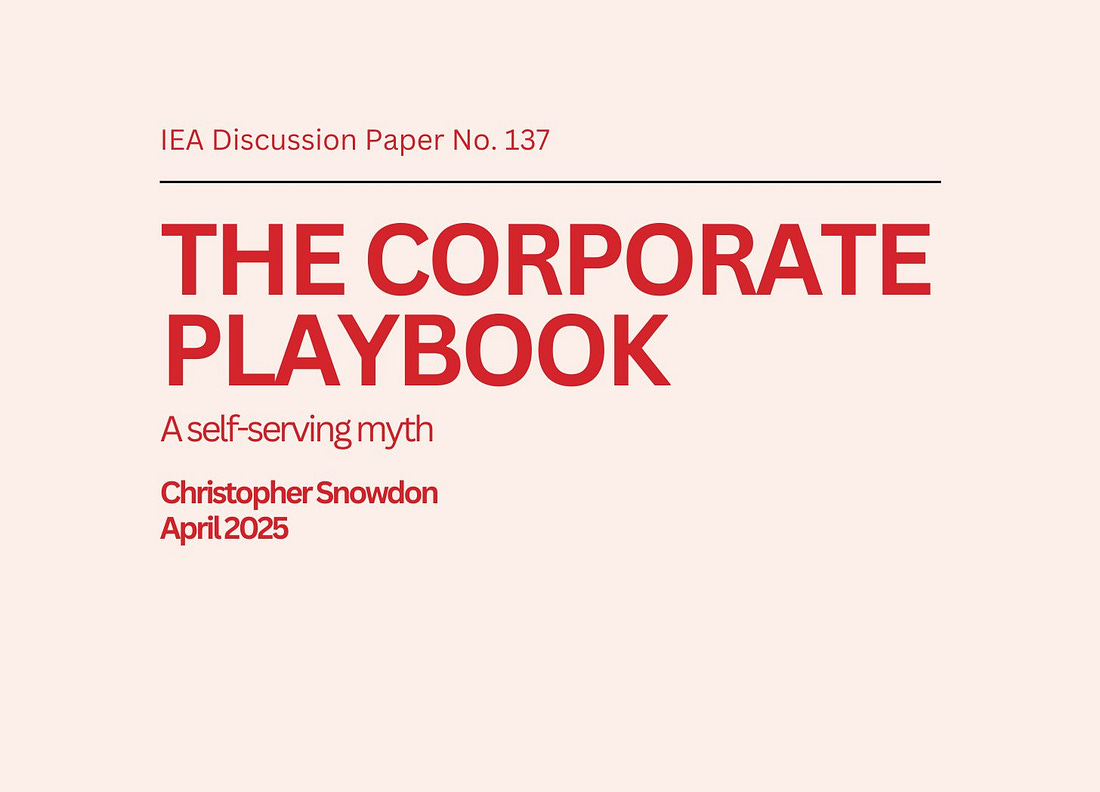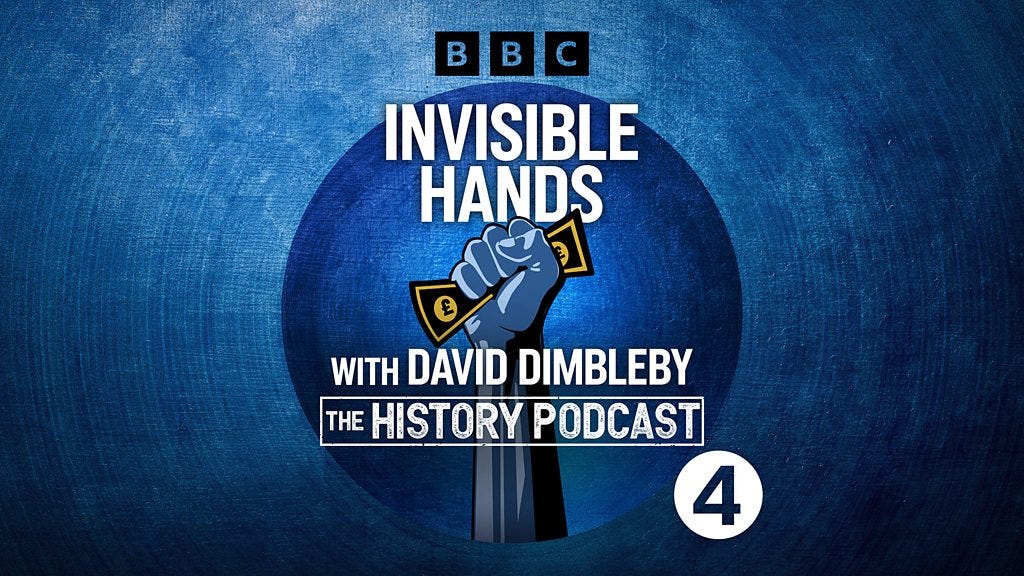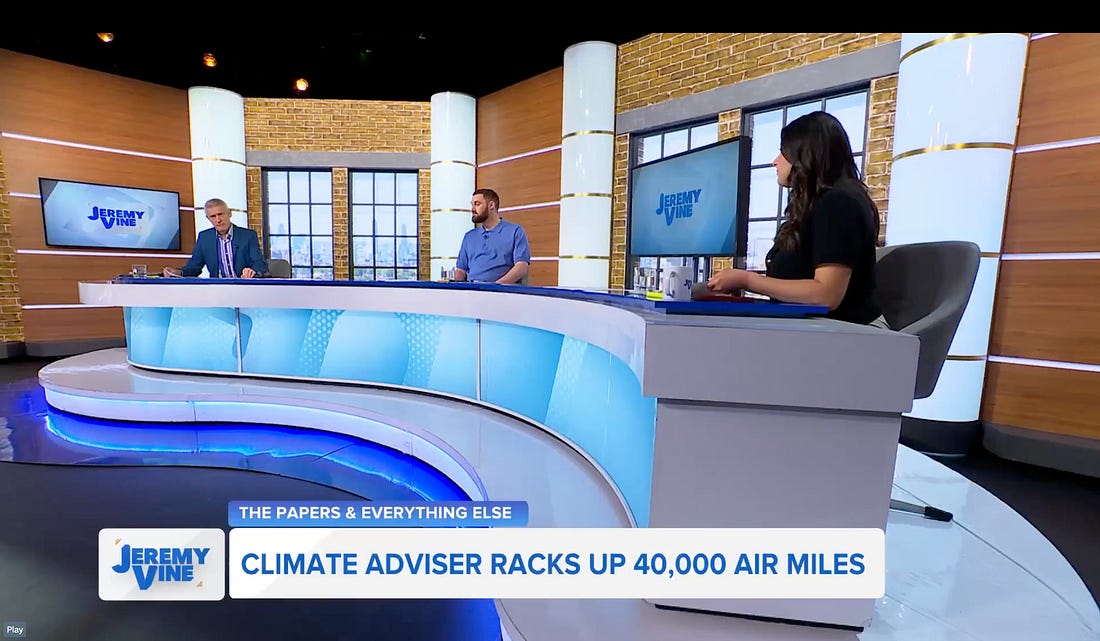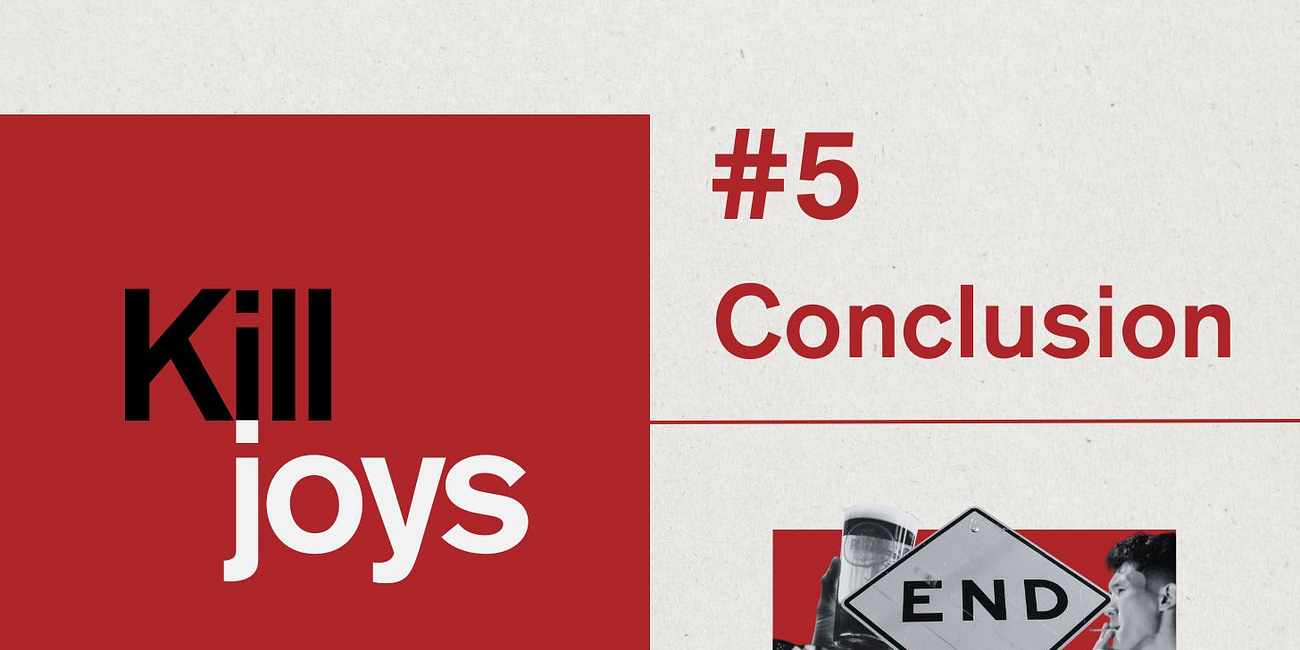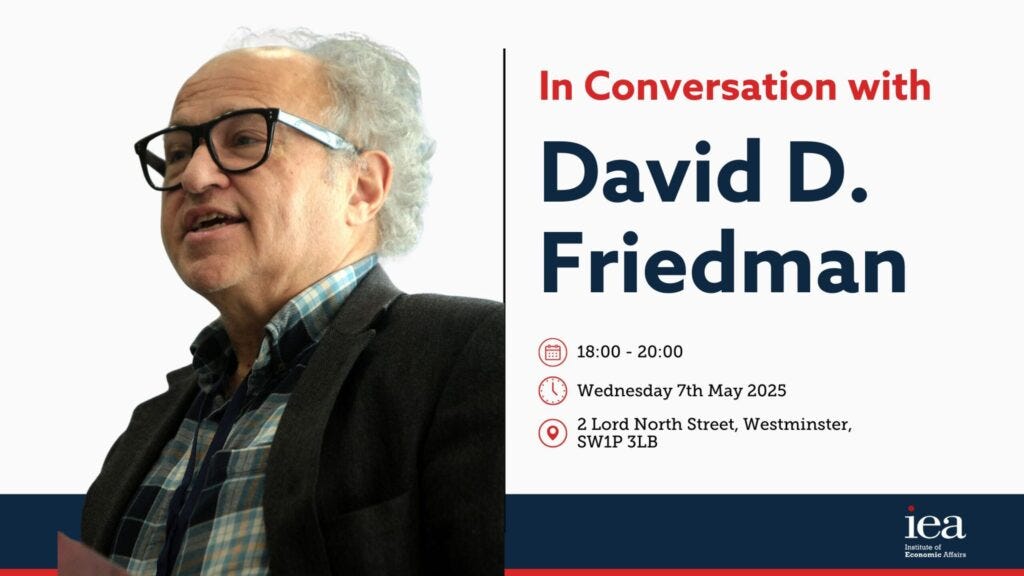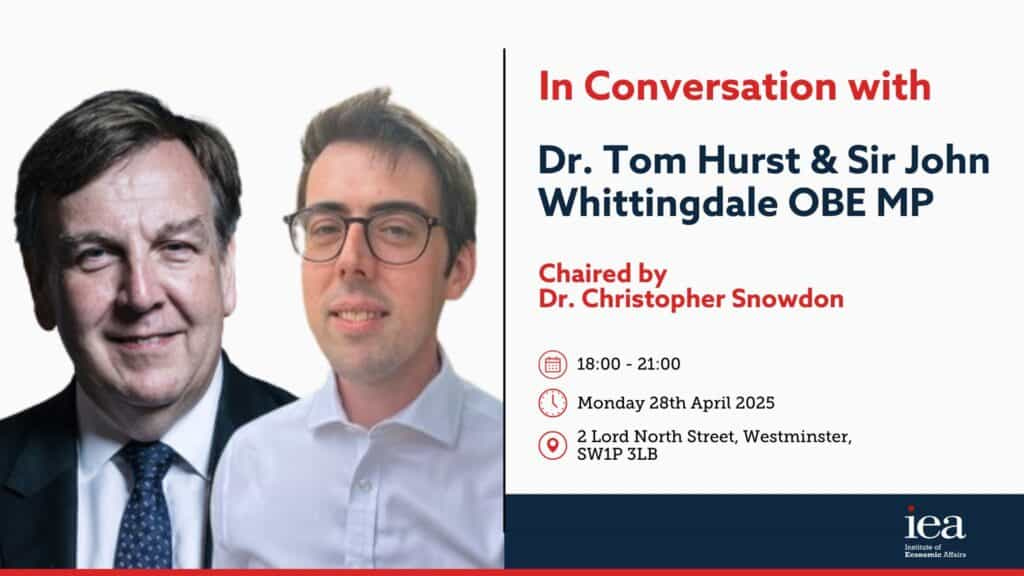|
In today’s newsletter:
Does restricting tech companies protect children?
Do women have better sex under socialism?
Is the “corporate playbook” really unique?
Are Islam and liberty compatible?
and more….
Child safety campaigners were the most vocal champions of the Online Safety Act. This focus has always obscured the broader reality: a sweeping regime primarily aimed at regulating adults.
Following the law’s implementation last month the likes of London Fixed Gear and Single-Speed (LFGSS) and Microcosm — a service that hosts 300 web forums — were forced to go offline in the UK. As Victoria Hewson and I warned in an IEA paper back in 2022, the immense red tape created by the legislation would not only threaten free speech and privacy but also be a gift to the larger companies that have the resources to comply.
This past week focused on the legislation's child safety aspects. Ofcom has finalised its Children's Safety Codes of Practice, which will come into effect in July. The regulator will have powers to fine firms up to 10 per cent of global revenues – billions of pounds – and criminal sanctions against senior executives for failure to comply.
But, once again, do not be fooled into believing that these rules will only impact children.
Services that can be accessed by children – practically any service – will be required to conduct extensive risk assessments and restrict content that could harm children, even if legal. This sets a broad threshold for content removals, with a risk that websites default to child-friendly versions to avoid having to use ‘robust’ age assurance methods like facial recognition or credit card checks. For those social media that split between adult and child-friendly versions, there are serious privacy risks implied by requiring them to determine the age of their users.
Some campaigners, including the taxpayer-funded Children’s Commissioner, have attacked Ofcom for putting Big Tech profits ahead of children’s safety. There’s an ongoing effort to ban social media for under-16s, a policy recently adopted in Australia. This is despite recent evidence indicating that kids with smartphones are less depressed, anxious and bullied than their peers without them.
There are undoubtedly risks in the online world, particularly for children. But when you ask who should decide what our kids are allowed to view, the overwhelming opinion is not Big Tech or the government, but parents. They are best placed to make decisions, particularly as children of different ages and inclinations might be more or less capable.
There’s also a broader question about children’s rights to access information, which is usually ignored in these debates. While children should be banned from some content, like pornography, there are many cases in which something potentially ‘harmful’ psychologically, like imagery from war, could also be educational.
Unfortunately, this week’s debate about online safety and children has not reflected these complexities. For now, the righteous and understandable thirst to protect children is trumping all else.
Matthew Lesh
Public Policy Fellow
P.S. The best way to never miss out on IEA work, get access to exclusive content, and support our research and educational programmes is to become a paid IEA Insider. For a limited time only, new paid subscribers will receive a copy of Dr Steve Davies’ book Apocalypse Next: The Economics of Global Catastrophic Risks for free.
Offer ends at the end of May!
IEA Podcast: Communications Manager Reem Ibrahim, Editorial Director Kristian Niemietz, and Public Policy Fellow Matthew Lesh discuss the IMF’s growth downgrade, why millionaires are leaving the UK, and whether women have better sex under socialism, IEA YouTube
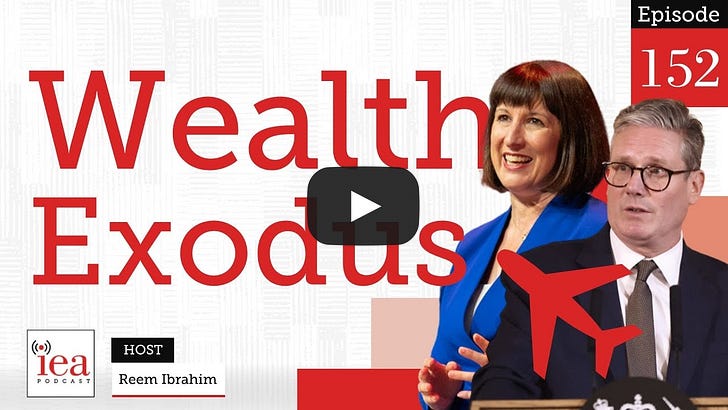
The Corporate Playbook
Public health academics claim industry tactics are uniquely harmful but provide no control groups or comparisons to non-industry actors.
The same political strategies are routinely used by public health campaigners themselves.
The 'corporate playbook' is a rhetorical device, not a meaningful contribution to political science.
A new paper from the Institute of Economic Affairs challenges the idea that “unhealthy commodity industries” like tobacco, alcohol, food and gambling follow a uniquely manipulative ‘corporate playbook’. The discussion paper, The Corporate Playbook: A Self-Serving Myth, argues that the tactics these industries are accused of using, including lobbying, coalition-building, media engagement and legal threats, are standard across all sectors, including NGOs and public health groups themselves.
For example, the 2007 indoor smoking ban, campaigned for by the pressure group Action on Smoking and Health, used five of the six strategies listed in the “tobacco playbook” framework.
Dr Christopher Snowdon, Head of Lifestyle Economics at the free market think tank the Institute of Economic Affairs, said:
“Every industry from infant formula to mobile phones has been accused of using the so-called ‘tobacco playbook’ over the years. It is a fatuous insult that has lost all meaning. Academics who have tried to put some beat on the bones of this jibe have only succeeded in providing a definition of normal political activity. Phrases like ‘corporate playbook’ and ‘commercial determinants of health’ should be seen as a red flag for dogmatic activism.”
Debunked: The Corporate Playbook, Head of Lifestyle Economics Christopher Snowdon and Communications Manager Reem Ibrahim, IEA YouTube
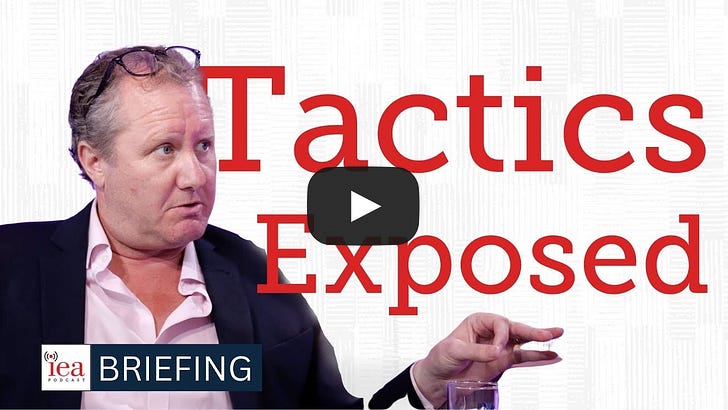
The public health playbook, Head of Lifestyle Economics Christopher Snowdon, The Critic
News and Views
Invisible Hands, The History Podcast, BBC Radio 4
BBC Radio 4 have created a podcast series detailing the history of an idea – free market capitalism – in the UK. The first episode details how a chicken farmer, Antony Fisher, became motivated to found the Institute of Economic Affairs.
Episode 1 - The Chicken Farmer
Episode 2 - The Mad Monk
Episode 3 - Selling the Silver
Episode 4 - The Big Bang
Episode 5 - The Lucky Gambler
What the Media Gets WRONG About Islam and Democracy, Senior Fellow at the Centre for Global Liberty and Prosperity at the Cato Institute Mustafa Akyol and Communications Manager Reem Ibrahim, IEA YouTube
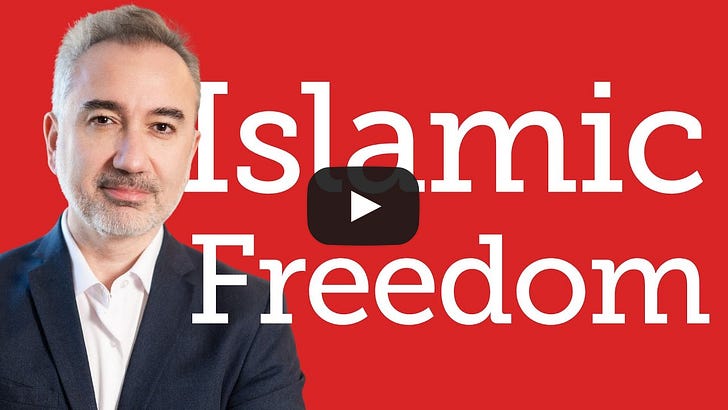
Britain 'needs to follow Donald Trump's lead and launch a war on woke universities, rid classrooms of anti-British sentiment and protect students from teachers' left-wing ideologies', Communications Manager Reem Ibrahim, the Daily Mail
'Schemes that prioritise ethnic minorities over white people are simply racist. Neither should governments dictate what private universities can teach, which students they admit, and which staff they hire.
'The solution is market-based reforms in higher education funding, promoting competition, individual choice, and reduced state involvement altogether.
'The UK Government should ensure that such discriminatory schemes are rooted out too.'
Communications Manager Reem Ibrahim appeared as a panellist on Channel 5’s the Jeremy Vine Show on Tuesday, discussing the two-child benefit cap amongst other topics.
Why are so many young people out of work?, Communications Manager Reem Ibrahim appeared on Rachel Johnson’s LBC show to discuss worklessness amongst young people — Listen here from 01:10:00.
"The UK should pursue unilateral free trade by reducing all tariffs to zero”, Communications Manager Reem Ibrahim appeared on BBC 5Live.
The Future of British Conservatism, Telegraph Columnist Simon Heffer and Communications Manager Reem Ibrahim, IEA YouTube
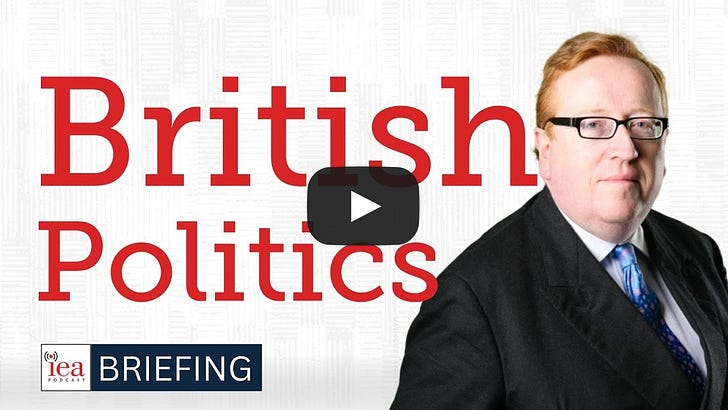
Labour’s EV and heat pump push is paving a path to bankruptcy, Strategic Partnerships Manager Matthew Bowles, CityAM
You’re currently a free subscriber to Insider. For the full experience, upgrade your subscription.
Paid subscribers support the IEA's charitable mission and receive special invites to exclusive events, including the thought-provoking IEA Book Club.
We are offering all new subscribers a special offer. For a limited time only, you will receive 15% off and a complimentary copy of Dr Stephen Davies’ latest book, Apocalypse Next: The Economics of Global Catastrophic Risks.
